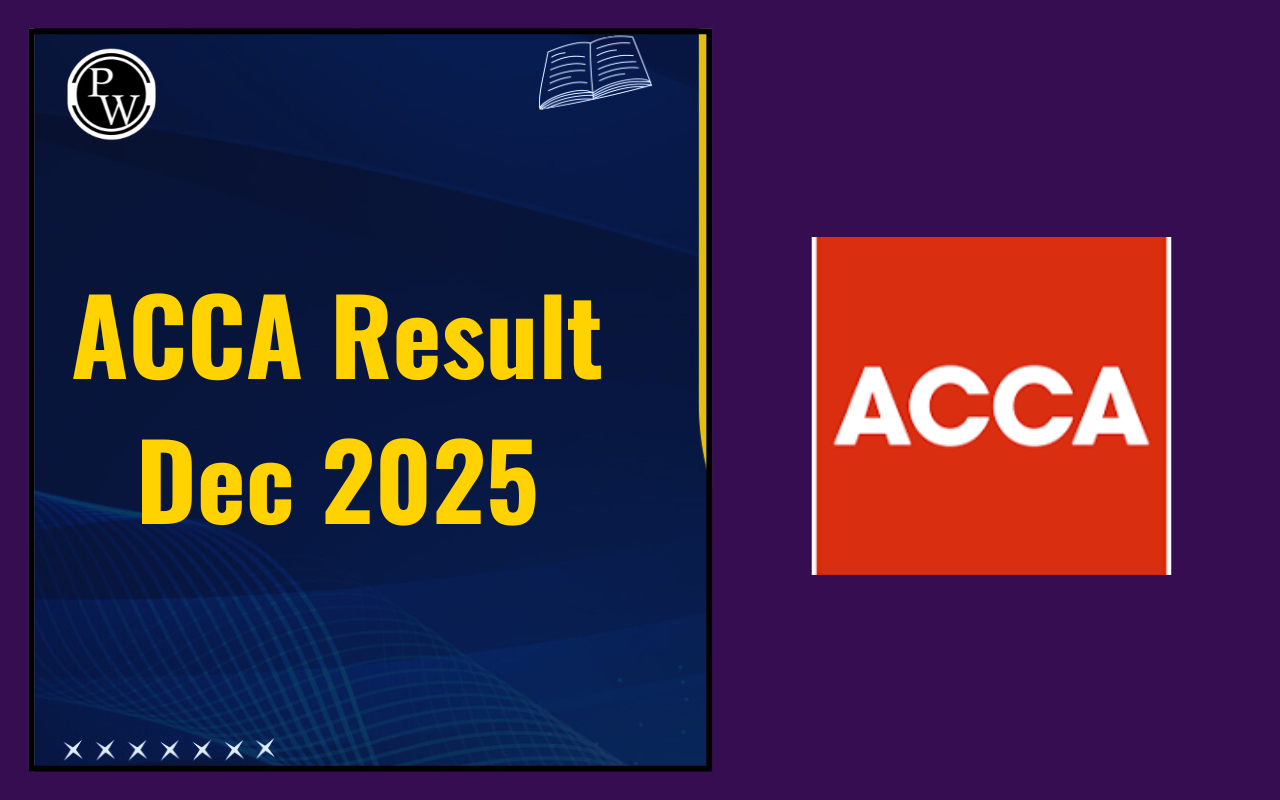
Courses to do After ACCA: After successfully completing the ACCA qualification, many professionals often ask, “What should be the next step?” The opportunities available are extensive, and selecting the right course can play a pivotal role in advancing one’s career. Whether the aim is to deepen expertise in finance, enhance management capabilities, or specialise in a niche domain, the decision taken post-ACCA is crucial for long-term professional growth.
Pursuing additional qualifications in finance and accounting after ACCA can significantly enhance career prospects and open new professional avenues. Popular options include pursuing the CFA designation or enrolling in a B.Com programme, each offering unique advantages.
Read about some of the most valuable courses to consider after ACCA, helping professionals strengthen their credentials and establish a competitive edge in the global finance industry.
How to Decide What to Do After ACCA?
Choosing the right path after completing ACCA largely depends on your career aspirations, personal interests, and the industry in which you aim to establish yourself. It is advisable to begin by evaluating where you envision yourself professionally over the next 5 to 10 years. Consider whether you intend to specialise in a specific domain such as financial analysis, risk management, or taxation, or if you prefer to broaden your managerial and leadership abilities through qualifications like an MBA.
Conducting thorough research on current industry trends, consulting experienced mentors, and assessing how each available course aligns with your long-term career goals is essential. Your decision should strike a balance between personal passion and the professional opportunities present within the market to ensure both personal fulfilment and career advancement.
Courses to Do After ACCA
Once you have successfully completed your ACCA qualification, the next important step is deciding how to further advance your career. Whether your goal is to specialise in a particular area or broaden your career prospects, acquiring additional qualifications can provide you with a significant advantage in the competitive financial sector. Below are some of the most valuable courses you can consider pursuing after ACCA:
MBA After ACCA
An MBA is an excellent option for ACCA professionals aiming to develop leadership, management, and strategic decision-making skills. This qualification is particularly beneficial for those who aspire to hold senior management positions or venture into entrepreneurship. Pursuing an MBA after ACCA can fast-track your career in finance, corporate leadership, consulting, and business strategy.
CFA After ACCA
The Chartered Financial Analyst (CFA) designation is highly recommended for professionals interested in investment banking, portfolio management, and financial analysis. Coupling the strong accounting foundation of ACCA with the advanced investment expertise provided by the CFA programme makes professionals exceptionally well-qualified for roles in asset management, hedge funds, investment banking, and equity research.
CA After ACCA
Earning the Chartered Accountant (CA) qualification after ACCA can enhance your expertise in auditing, taxation, financial advisory, and corporate accounting. This combination is ideal for professionals working in markets where the CA designation holds significant value and reputation. It broadens your career options, deepens your accounting knowledge, and strengthens your standing in the financial sector.
Law After ACCA
Pursuing legal studies after ACCA is a strategic choice for those with an interest in corporate law, tax law, or regulatory compliance. This combination opens doors to specialised roles such as legal consultant within financial institutions, compliance officers, or corporate legal advisors. It is especially valuable in industries where legal expertise is closely tied to financial operations.
B.Com After ACCA
While it may seem unconventional, enrolling in a Bachelor of Commerce (B.Com) programme after ACCA can be advantageous for professionals from non-commerce backgrounds. It provides a solid foundation in business, finance, and management principles, complementing the technical skills acquired through ACCA and making the candidate more versatile in various business environments.
M.Com After ACCA
The Master of Commerce (M.Com) is suitable for those seeking advanced knowledge in accounting, finance, and business studies. It is particularly beneficial for individuals aiming for academic roles, research positions, or those wishing to deepen their expertise for higher corporate responsibilities.
Management Accounting
If your interests lie in financial planning, cost management, and strategic decision-making, a qualification in Management Accounting is highly recommended. This course complements the ACCA qualification by opening up opportunities in corporate strategy, budgeting, financial analysis, and management advisory services.
Finance and Accounting
Pursuing further studies in Finance and Accounting through specialised certifications or postgraduate programmes enhances your skills in financial reporting, corporate finance, risk management, and business analysis. This added expertise makes you highly adaptable in a dynamic job market and increases your employability across multiple industries.
Forensic Accounting
For professionals intrigued by financial investigations and fraud detection, a course in Forensic Accounting is a valuable option. It equips you with skills to identify, investigate, and prevent financial crimes, regulatory breaches, and corporate misconduct. The demand for forensic accountants is steadily growing across auditing firms, regulatory bodies, law enforcement agencies, and corporate organisations.
Also Check: Can I Pursue ACCA While Working?
Career Options After ACCA
Earning your ACCA qualification opens numerous professional opportunities. While many choose to follow traditional career paths in accounting and auditing, it is perfectly acceptable, and sometimes even advisable, to explore alternative avenues. Below are some exciting and rewarding career options you can consider after completing ACCA:
Explore Global Career Opportunities
With an internationally recognised ACCA qualification, you have the chance to work in diverse countries around the world. Many global employers and professional bodies value the skills and knowledge that come with ACCA membership. This allows you to experience different business cultures, financial practices, and regulatory environments, providing valuable international exposure that enhances both your professional and personal growth.
Start Your Own Business
If you possess a strong business idea or entrepreneurial spirit, establishing your own venture can be an excellent way to apply your financial expertise in a practical setting. Your ACCA background equips you with the financial management, risk assessment, and strategic planning skills necessary to manage and grow a business effectively. While entrepreneurship comes with its challenges, it also offers independence and the opportunity for significant personal fulfilment.
Pursue a Career in Teaching and Mentorship
Sharing your expertise with aspiring finance professionals can be an enriching and impactful career option. You might consider teaching finance and accounting at universities, professional institutes, or through online platforms. This not only helps you stay updated with industry trends but also allows you to contribute meaningfully to the professional community by guiding future accountants and financial experts.
Establish a Financial Consulting Firm
Leverage your ACCA qualification by starting your own financial consulting firm. You can offer services in areas such as financial planning, audit advisory, risk management, or business consultancy. This role enables you to assist businesses in overcoming financial challenges while providing tailored advice to improve operational efficiency and financial performance, all while maintaining your independence as a business owner.
Explore the Field of Management Accounting
If your interests lie in strategic financial decision-making and internal business processes, specialising in Management Accounting is a valuable option. Obtaining an additional qualification like CMA (Certified Management Accountant) complements your ACCA credentials and positions you for senior roles in financial planning, analysis, and corporate strategy within various industries.
Contribute to Social and Non-Profit Organisations
Applying your financial expertise within non-governmental organisations (NGOs), charities, and social enterprises can be a highly rewarding experience. These roles allow you to use your professional skills for causes you are passionate about, contributing to positive social, environmental, and economic changes in communities around the world.
Work in a Start-Up Environment
Joining a start-up offers a dynamic and fast-paced work setting where your ACCA skills can add considerable value. Whether handling financial operations, business development, or strategic management, you will have the opportunity to work closely with founders and leadership teams, contributing to the growth and innovation of emerging businesses.
Venture into the Digital Finance Sector
As the finance industry continues to evolve with digital transformation, opportunities in Fintech, Blockchain, Data Analytics, and AI-driven financial services are expanding rapidly. Combining your ACCA qualification with expertise in these emerging technologies can position you at the forefront of financial innovation, offering roles that are both challenging and future-focused.
| Also Check: |
| How To Self-Study For ACCA? |
| How to Get an ACCA Scholarship in 2025? |
| Is ACCA Easy to Crack? |
| Can Indian ACCA Work In Other Countries? |
FAQs
What are the best courses to pursue after ACCA?
Is it worth doing an MBA after ACCA?
Can I start my own business after completing ACCA?
What non-traditional career paths can I explore after ACCA?










